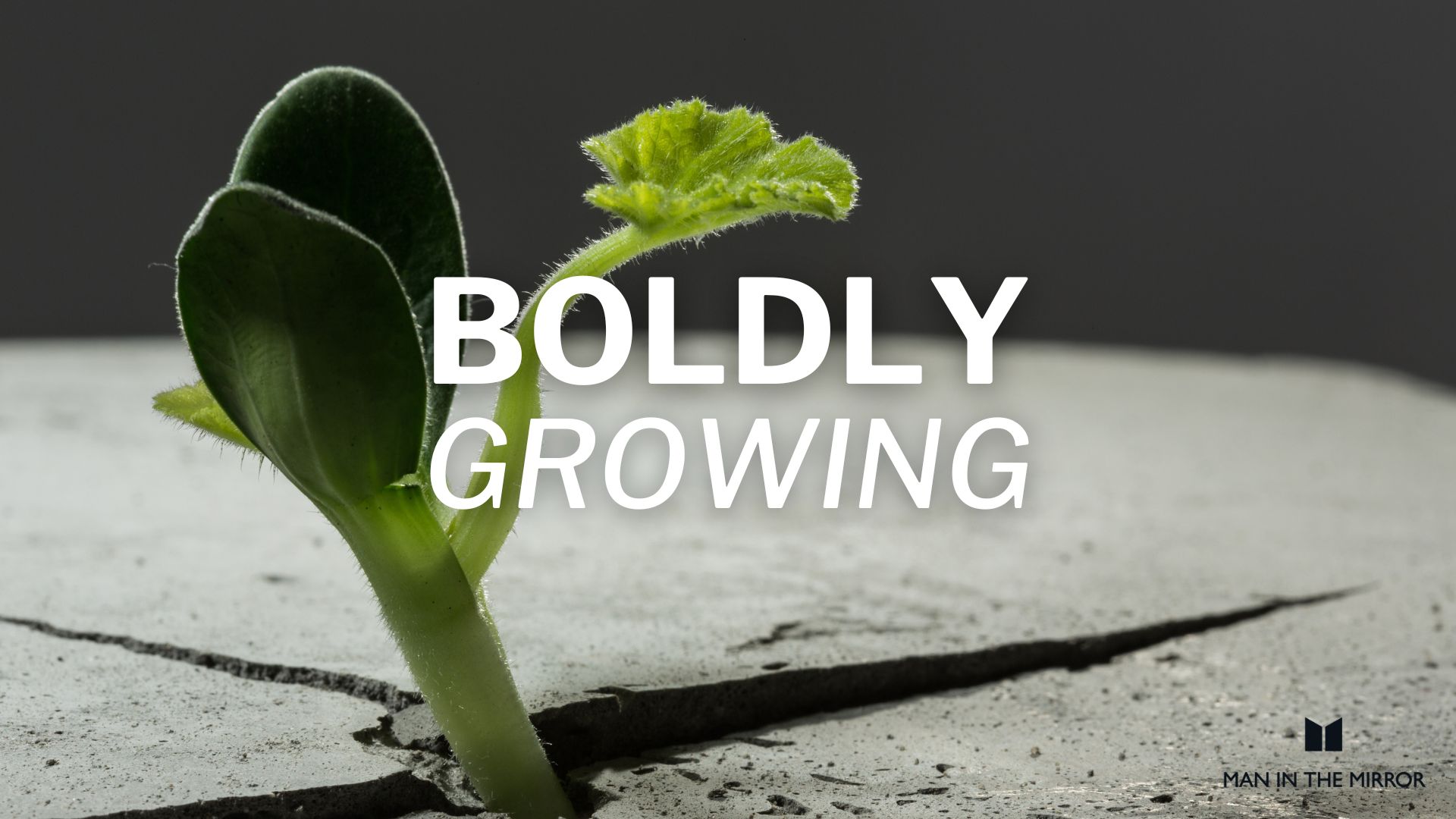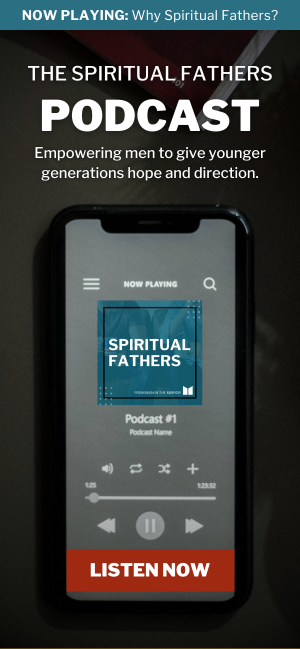Boldly Growing: Awareness, Ownership, HOPE
As I reflect on the past two months of launching the beta test for Spiritual Fathers, what I’ve observed has me dreaming about what God is going to do through Christian men who are boldly growing in awareness, ownership, and hope—and how it impacts us all.

By Jeremy Schurke
Director of Mirror Labs
Man in the Mirror
Over the past two months, we successfully launched the beta test of our 10,000 Spiritual Fathers initiative in seven different cities—Orlando, Phoenix, Houston, Indianapolis, San Diego, Dayton, and Naples.
We invited mature Christian men over 40 in each of these areas of the country to join us for a full-day orientation. Our desire was to gauge interest, inspire, and prepare them to serve and disciple younger adult men with the loving heart of a father. Our goal for the launch was a total of 500 registrants across the full-day orientations with at least 200 men committing to one year of engaging as Spiritual Fathers through this beta test.
Close to 300 men are moving forward with us on the journey of spiritually fathering a younger man.Click To TweetWe are excited to report that we had more than 550 men register, and close to 300 men are moving forward with us, beginning by reading our new Spiritual Fathers Guidebook and then prayerfully starting on the journey of spiritually fathering a younger man.
Looking back on this two-month launch period, I’ve made three observations related to awareness, ownership, and hope—
1) A Growing Awareness of the Problem
It’s hard to argue with widescale statistics. The church in America has been declining for decades. As we’ve written about previously, the religiously “unaffiliated” are the fastest growing religious group—and now, as a result, the second largest, behind Christianity.
There are other concerning trends as well. For example, we are in the midst of a male friendship recession, with many feeling isolated, unknown, and unseen. And more and more children are growing up with absent fathers, both physically and emotionally.
Knowing some in the church have turned a blind eye to these trends, I figured there’d be some push back from orientation participants when we presented the data.
There wasn’t. There was a near universal acknowledgement of the problems at hand.
2) A Growing Ownership of the Present
As we described the issues facing young men, it was a bit like calling attention to the elephant in the room of the church. The men at the orientations were eager to discuss and theorize about why these trends were occurring. The common answers given were things like:
- The Education System
- Political Parties
- The Culture Wars
The assumption going in was that these outside “evil” forces were corrupting young minds. As is usually the case, some men were louder than others about their viewpoints.
However, when we showed them data and related it to the opportunity we have with young men, their tone changed. As we shared in our talks, the disconnect for younger men is overwhelmingly more about relational brokenness than wayward ideology.
Three things are evident, with huge implications for all of us:
- Young men want friends.
- They want older men to guide them.
- They want to live a good, meaningful life.
Once we started unpacking this, the conversation began to change from outside forces to internal cracks. Older men began to open up about the struggles of their own adult sons, about how they want deeper friendship themselves, and about how they had never had an older man to guide them.
The conversation began to change from outside forces to internal cracks.Click To TweetThe problem quickly became more personal, the opportunity more accessible, and the answer more straightforward—
Instead of vaguely fighting systems of power, they could each build a relationship with one younger guy to bridge the gap. There were many “If not me, then who?” moments.
3) A Growing Hope for the Future
Looking at my social media feeds about American Christianity can often feel like doom scrolling! It’d be easy to walk away with the impression that older believers err toward being narrow minded, unapologetically biased, and completely rigid.
These orientations have shown me the truth. The grumpy, angry men who are most vocal on social media are not the vast majority of men I met in person, who were hungry to learn, excited to engage, and yearning for more.
My basic working theory is simple now: Young men want older men in their lives but don’t know where to find them; older men want to be in young men’s lives but just don’t know how to engage.
Young men want older men in their lives but don’t know where to find them; older men want to be in young men’s lives but just don’t know how to engage. Click To TweetSurely, these are solvable problems. The question is—where do they fall on our priority list of problems to solve?
Perhaps what appears to be an incoming recession and hellacious political season will be good for us. It will force us to take inventory of what’s truly important.
The stock market will fall and rise and fall again. Shakable kingdoms and temporary governments will continue to be minuscule in eternity’s scope. But our lives and the intentionality of our relationships can break generational curses and usher others into the one unshakable Kingdom.
I keep thinking about Marcus Aurelius saying, “What we do now echoes in eternity.” I think that’s true. Restoring the intergenerational relationships of adult men will reverberate throughout eternity. It only takes a few who are willing, and now I’ve seen firsthand that there are far more than a few.
I’m very hopeful that we can continue to connect the disconnected. That God can make all things new. That there is more than just the Truth, but a Way and a Life for ALL men.
I'm hopeful that there is more than just the Truth, but a Way and a Life for ALL men.Click To TweetThe possibilities are endless, and our small sample size from this launch has me dreaming of what might be in the Kingdom come.
THE BIG IDEA: What we do now to heal relational brokenness will echo in eternity.
♦♦♦







